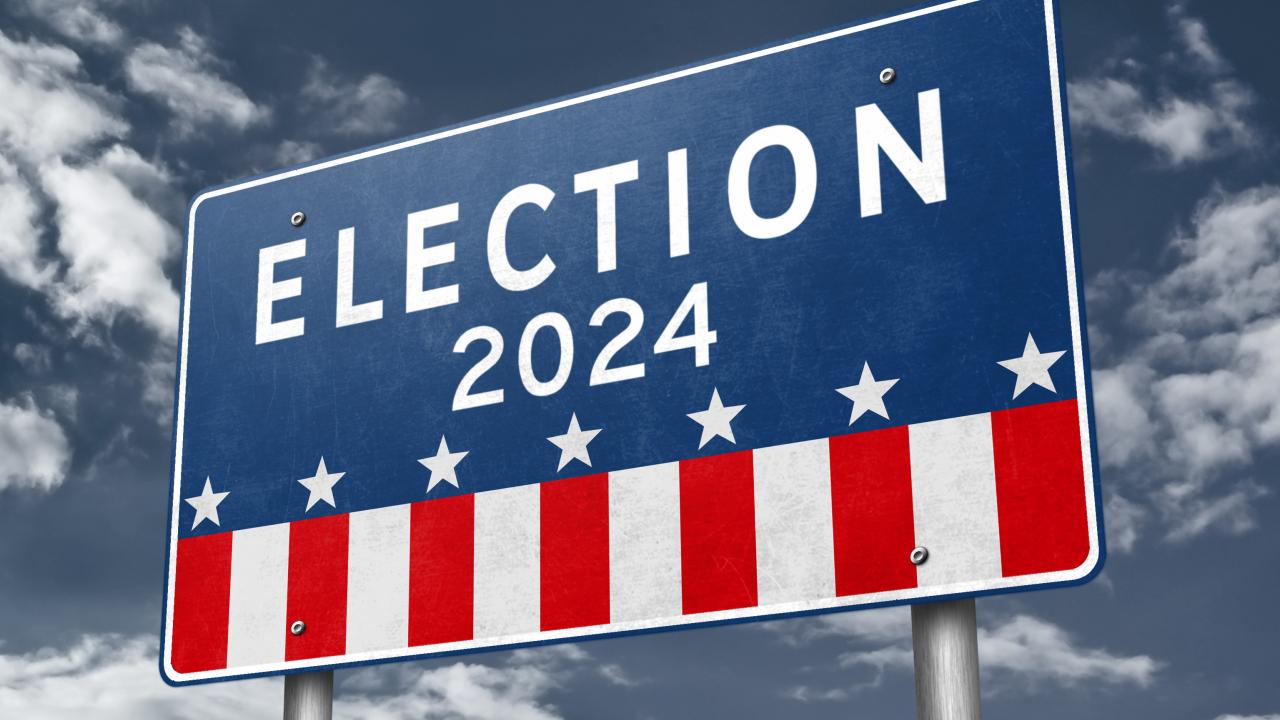UC Davis has political scientists, historians, security experts and law professors who can address various issues in the elections this year. This expert guide was initially published in February and again updated on Nov. 4, 2024.
American politics, general elections, public opinion, Congress
Ben Highton, professor in the Department of Political Science, teaches and conducts research in the areas of American politics, public opinion, elections and research methods. He currently serves as a member of the American National Election Studies Board. Contact: bhighton@ucdavis.edu
Erik Engstrom specializes in the study of the U.S. Congress, political parties, and American political development. He is the author of four books: The Politics of Ballot Design (with Jason M. Roberts, 2021, Cambridge), Race, Class, and Social Welfare (with Robert Huckfeldt, 2020, Cambridge), Partisan Gerrymandering and the Construction of American Democracy (2013, Michigan) and Party Ballots, Reform, and the Transformation of America’s Electoral System (with Samuel Kernell, 2014, Cambridge, 2015 Winner of the J. David Greenstone Prize). Contact: ejengstrom@ucdavis.edu
Voting Rights
Greg Downs, professor and chair of the Department of History, is an expert on 19th century America and the transformation of the Constitution around the end of slavery, the establishment of equal protection under the law, and the extension of voting rights. He has co-written amicus briefs for the Supreme Court and other federal courts on the relevance of history to contemporary legal debates about voting and affirmative action, among other issues. He is one of 18 historians selected by the Brennan Center at New York University to serve on the council that advises on historical Constitutional issues. Contact: gdowns@ucdavis.edu
Party polarization
Read More About Party Polarization
Read this story on research by James Adams
Jim Adams, professor in the Department of Political Science, studies parties, elections and public opinion. His work analyzes parties’ election strategies along with the causes of cross-party hostility and distrust in western publics. His book American Affective Polarization in Comparative Perspective compares Americans’ political anger and distrust with the levels of anger and distrust in 19 other western publics. Contact: jfadams@ucdavis.edu
African American history, civil rights, Black power movement, race, racism, gender, sexuality
Traci Parker, associate professor of history, is a specialist in African American history. Her work focuses on the Civil Rights and Black Power Movements, labor, consumer capitalism, gender, and sexuality. Her first book, Department Stores and the Black Freedom Movement: Workers, Consumers, and Civil Rights from the 1930s to the 1980s (University of North Carolina Press, 2019), was named a 2019 CHOICE Outstanding Academic Title.

She is the co-editor of The New Civil Rights Movement Reader: Resistance, Resilience, and Justice (University of Massachusetts Press, 2023). Her current book project, Beyond Loving: Love, Sex, and Marriage in the Black Freedom Movement, explores activists’ romantic relationships in the Civil Rights and Black Power Movements. Prior to coming to UC Davis, she worked in the W. E. B. Du Bois Department of Afro-American Studies at the University of Massachusetts Amherst. Contact: tparker@ucdavis.edu
Immigration
Kevin R. Johnson is a distinguished professor of law, Mabie-Apallas Professor of Public Interest Law, and Martin Luther King Jr. Professor of Law. Johnson also has an appointment as professor of Chicana/o studies at UC Davis. He served as dean of UC Davis Law from 2008 to 2024. Johnson is the most-cited immigration law scholar in the U.S. and is an internationally recognized scholar in the fields of refugee law and civil rights. Contact: krjohnson@ucdavis.edu
Redistricting, access to vote, housing
(Propositions 33 and 5 on the ballot)
Christopher S. Elmendorf, professor of law, works in the areas of property law, election law, statutory interpretation, and administrative law, using both doctrinal and empirical methods. He is a leading authority on California land-use and housing law, and has also done widely noted work on public understanding of housing markets and opinion about housing policy. His research has been published in numerous top law reviews and political science journals and he is often quoted and published in general-circulation and broadcast media on housing issues.
His work has been funded by the National Science Foundation, the MIT Election Science and Data Lab, and an Interdisciplinary Research Grant from the UC Davis Committee on Research. Contact: 530-752-5756, cselmendorf@ucdavis.edu
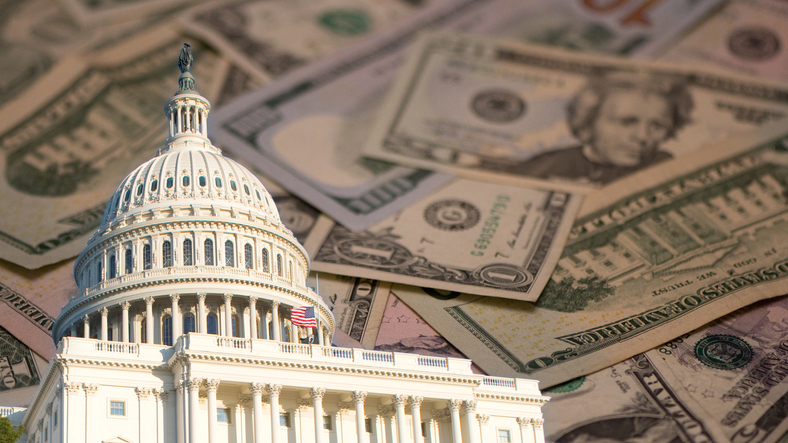
Racial and ethnic politics, especially Latinx politics
Brad Jones, professor of political science, teaches and does research in the field of race and ethnic politics, particularly emphasizing immigration policy, attitudes and opinion about immigration, and Latinx politics more generally. His recent work has focused on the implications of deportation policy as well as the relationship between border enforcement and migrant deaths on the U.S.-Mexico border. Jones also focuses on Latinx identity, non-Latinx perceptions of Latinx, and Latinx-relevant public policy, including U.S. immigration policy. His work has been published in several leading academic journals such as the American Political Science Review, American Journal of Political Science, Journal of Politics, Political Behavior, Politics of Groups and Identity, and Group Processes and Intergroup Relations. He frequently engages the media on questions related to immigration policy and has been quoted in the Washington Post, New York Times, Christian Science Monitor, Pacific Standard and other national media as a leading source of public opinion on immigration and border-related issues. In addition to national media, he has discussed these issues with Australian, French, Italian, Latvian and Northern Irish media outlets. Contact: bsjjones@ucdavis.edu
6 Big Issues to Watch in the General Election
Read what UC Davis experts say in this story.
Rural vote, white vote
Lisa Pruitt, professor of law, explores rural-urban differences in relation to how people engage law and the state. Her central premise is that law and legal scholarship have become metro-centric and that most lawyers and law professors, along with many judges, know little about rural people and places and how they differ from what has become the implicit urban norm. Pruitt has since brought a ruralist lens to myriad legal topics, among them abortion access, substance abuse, termination of parental rights, domestic violence, access to justice, health and human services, and indigent defense.
In 2020, she wrote about J.D. Vance's memoir, Hillbilly Elegy, in The Conversation, finding his characterization of poor rural whites compelling but too focused on personal responsibility.
Pruitt has also written extensively on Article 14 of the Convention on the Elimination of All Forms of Discrimination Against Women, of which Article 14 guarantees particular rights to “rural women.” Pruitt’s work reveals how the economic, spatial and social features of rural locales, (e.g., material spatiality, lack of anonymity) profoundly shape the lives of residents, including the junctures at which they encounter the law. This work also considers how rurality inflects dimensions of gender, race and ethnicity. Indeed, the most recent thread of Pruitt’s scholarship explores critical whiteness studies as a thread of critical race theory. Contact: 530-752-2750, lrpruitt@ucdavis.edu
Free speech
Ashutosh (Ash) Bhagwat, the Boochever and Bird Endowed Chair for the Study and Teaching of Freedom and Equality at the School of Law, is a nationally recognized expert on free speech and the First Amendment, their relationship to democracy, and the implications of new technology such as social media for free speech. He has written about a variety of subjects ranging from the structure of constitutional rights, to free speech law, to the California Electricity Crisis. Contact: aabhagwat@ucdavis.edu
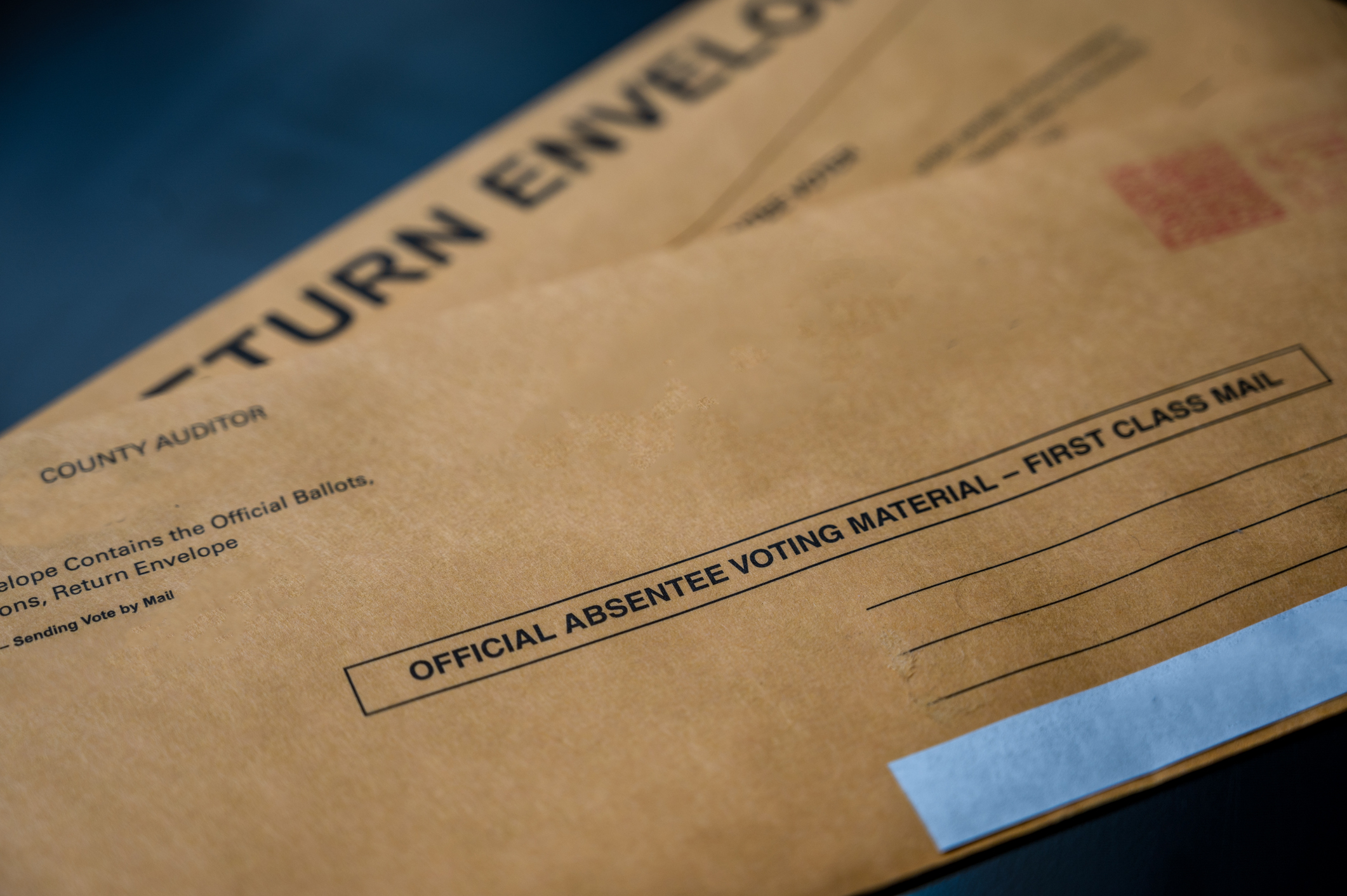
Voting security
Professor Matt Bishop’s research area, in the Department of Computer Science, is computer security, in which he has been active since 1979. He is co-director of the computer security lab on campus. He is especially interested in vulnerability analysis and denial of service problems, but maintains a healthy concern for formal modeling (especially of access controls and the Take-Grant Protection Model) and intrusion detection and response. He has also worked extensively on the security of various forms of the UNIX operating system. He is involved in efforts to improve education in information assurance, and is a charter member of the Colloquium for Information Systems Security Education. His textbook, Computer Security: Art and Science, was published by Addison-Wesley in December 2002. Contact: mabishop@ucdavis.edu
Abortion, politics of reproduction
Mary Ziegler, professor of law, is an expert on the law, history and politics of reproduction, health care and conservatism in the United States from 1945 to the present. She was a 2023 Guggenheim fellow and one of the world’s leading historians of the U.S. abortion debate.
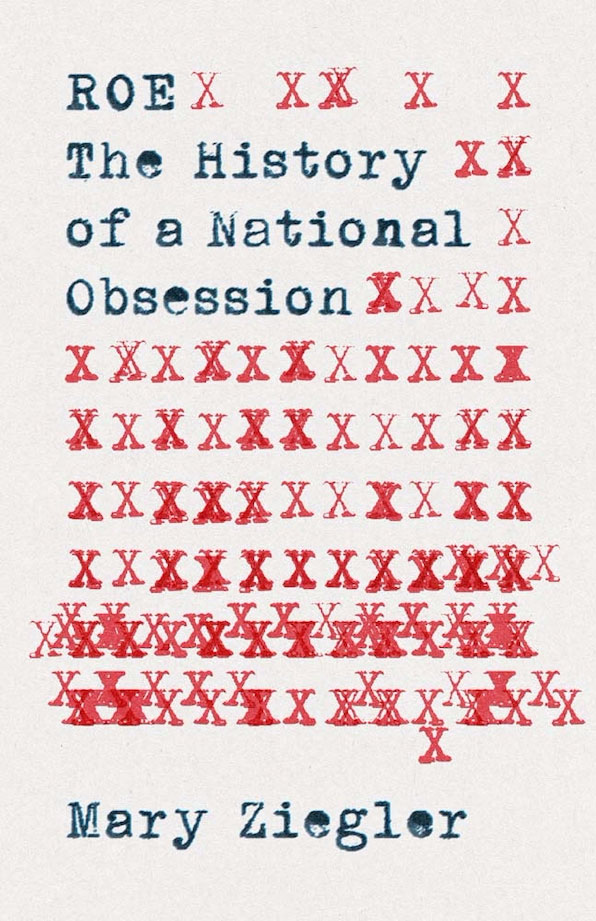
She is the author of numerous articles and six books on social movement struggles around reproduction, autonomy and the law, including Abortion and the Law in America: Roe v. Wade to the Present (Cambridge University Press, 2020); Beyond Abortion: Roe v. Wade and the Fight for Privacy (Harvard University Press, 2018); the award-winning After Roe: The Lost History of the Abortion Debate (Harvard University Press, 2015), which won the Harvard University Press Thomas J. Wilson Prize for best first manuscript in any discipline; Reproduction and the Constitution (Routledge, 2022); Dollars for Life: The Anti-Abortion Movement and the Fall of the Republican Establishment (Yale University Press, 2022); and most recently, Roe: The History of a National Obsession (Yale University Press, 2023). She is also the editor of a major international collection with Elgar Press about abortion law around the world.
She is working on a history of the struggle for fetal rights for Yale University Press as well as articles on the history of parents’ rights claims and the history of the Supreme Court’s “history and tradition test.” Contact: mziegler@ucdavis.edu
The New Deal, historic presidencies, electoral college
Eric Rauchway, distinguished professor of history, is an expert on the New Deal and the Second World War, and is prepared to talk about politics and policies designed to thwart fascism.
He commented in a Huffington Post article that compared President Hoover’s presidency to Trump’s, citing failures to act and use presidential authorities in a crisis. He explained how presidential transitions work in the podcast featured in this article, citing the transition from Hoover to Roosevelt as a troubling one. He is interviewed in this PolitiFact article, as well, about how two things, historically, doom former presidents seeking a second term: a bad economy and significant events that get out of control. And he was quoted in Slate in 2024 about the historical effects of women's votes and presidential election outcomes. Contact: earauchway@ucdavis.edu
Conspiracy theories; roots of modern conservatism
Professor of history Kathryn S. Olmsted has long investigated conspiracy theories, from the Kennedy assassination to 9/11, and many that have cropped up since, even during the primary and general elections. She authored Real Enemies: Conspiracy Theories and American Democracy, World War I to 9/11 (2009); it was reissued this year with a new epilogue on the Trump era. She has also written op-eds comparing Watergate and the Trump impeachment inquiry in The New York Times and Washington Post.
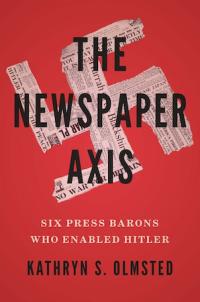
In her recent research, she also has re-examined the labor disputes in Depression-era California that led California’s businessmen and media to create a new style of politics with corporate funding, intelligence gathering, professional campaign consultants and alliances between religious and economic conservatives. She has been featured in various podcasts and other media, including CSPAN. Her 2015 book is Right Out of California: The 1930s and the Big Business Roots of Modern Conservatism. Her most recent book, The Newspaper Axis: Six Press Barons Who Enabled Hitler, looks at the isolationist media in the U.S. and the U.K. in the 1930s and 1940s. Olmsted also co-edited a book on the history of the Central Intelligence Agency and has published journal articles and book chapters that highlight her overlapping areas of expertise: conspiracy theories, government secrecy, espionage, counterintelligence and anticommunism. Contact: 530-752-7764, ksolmsted@ucdavis.edu
Voting behavior, swing voters and election forecasting
Chris Hare, associate professor of political science, uses statistical modeling and innovative quantitative methodology to better understand voting behavior, public opinion and political campaigns. Since 2017, he has taught workshops on machine learning applications in the social sciences for the Essex Summer School in Social Science Data Analysis and the Inter-university Consortium for Political and Social Research Summer Program in Quantitative Methods of Social Research. His research has been published in the American Journal of Political Science, the British Journal of Political Science, and Political Analysis. He is also a co-author of the book Analyzing Spatial Models of Choice and Judgment. Contact: 530-754-0942, cdhare@ucdavis.edu
Aging and memory
Charan Ranganath is a professor in the UC Davis Department of Psychology and director of the Dynamic Memory Lab at the UC Davis Center for Neuroscience. He can discuss memory performance and aging. Ranganath is the author of the new book, Why We Remember, which explores how a new understanding of memory is emerging from the latest scientific research. Ranganath has recently appeared in numerous media outlets including the PBS NewsHour, New York Times, Los Angeles Times and NPR. Contact: cranganath@ucdavis.edu
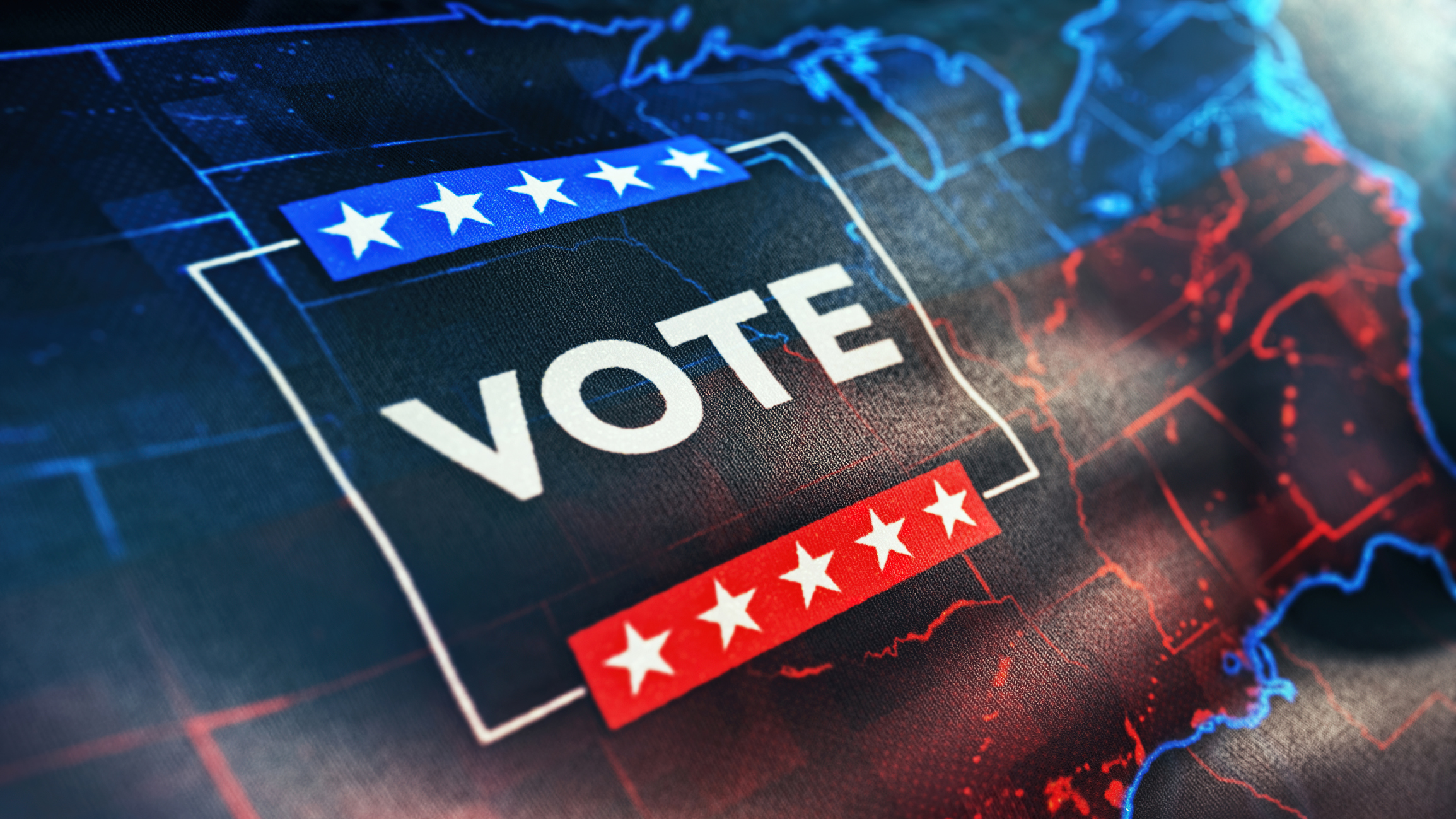
How media use, and political talk, influences the political divide
Magdalena Wojcieszak, professor of communication, studies how the changing media environment creates both opportunities and challenges for informed publics, tolerant citizenry and responsive governance. She co-authored an op-ed in The Conversation, “Trump Supporters Have Little Trust in Societal Institutions.” She is part of an independent partnership between researchers and Meta to study the impact of Facebook and Instagram on key political attitudes and behaviors during the U.S. 2020 elections. She is also part of the Misinformation Committee at Harvard University’s Social Science One, the first-ever partnership between academic researchers and social media platforms. She also leads several other projects that seek to identify and minimize harmful content on YouTube. Contact: mwojcieszak@ucdavis.edu

Interaction between media and politics
Amber Boydstun, co-chair of the Department of Political Science, studies the interaction between media and politics, with a focus on how different media portrayals of the same policy issue can prompt citizens and policymakers to respond to that issue in different ways. She uses lab experiments, large-scale media studies, and manual and computational text analysis to study how issues make the news; the dynamics of “media storms;” and how media coverage can shape public opinion about policy issues such as immigration, gun control, same-sex marriage and capital punishment. Contact: aboydstun@ucdavis.edu
Constitutional law, treason, impeachment, Supreme Court
Carlton Larson, professor of law, is a scholar of American constitutional law and Anglo-American legal history. His scholarship addresses a wide range of issues, including enemy combatant detentions, legacy preferences in public universities, the historical basis of Second Amendment rights, and parents’ rights to name their children.
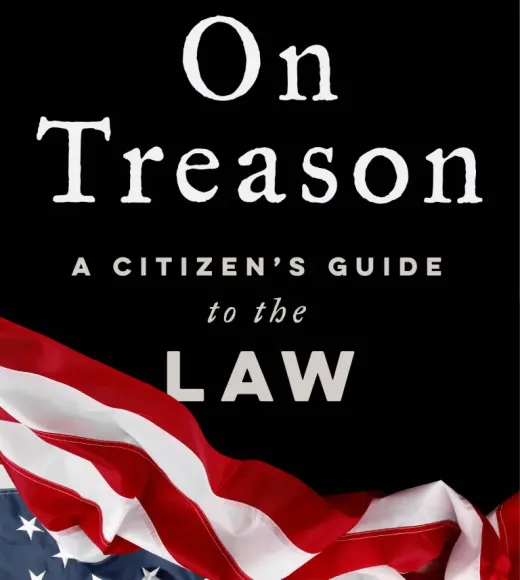
He is author of The Trials of Allegiance: Treason, Juries, and the American Revolution (Oxford University Press). He talks about the book in this video.
He also authored On Treason: A Citizen’s Guide to the Law (Ecco/HarperCollins). Prior to joining the UC Davis law faculty, Professor Larson served as a law clerk to Judge Michael Daly Hawkins of the United States Court of Appeals for the Ninth Circuit and spent three years as a commercial litigator at Covington & Burling in Washington, D.C. Contact: 530-754-5731, clarson@ucdavis.edu
Vikram D. Amar returned to UC Davis as a distinguished professor of Law in 2023 after serving as the dean and the Iwan Foundation Professor of Law at the University of Illinois, Urbana-Champaign College of Law since 2015. Directly before that he was a Professor and the Senior Associate Dean for Academic Affairs at UC Davis School of Law from 2008 to 2015. Amar is one of the most eminent and frequently cited authorities in constitutional law, federal courts and civil procedure, and has written about how the president affects the courts at all levels. He can address, among other things, how the presidency can affect the Supreme Court. Amar is believed to be the first person of South Asian heritage to clerk at the U.S. Supreme Court, and was the first American-born person of Indian descent to serve as a dean of a major American law school. He has produced several books and more than 60 articles in leading law reviews. Follow Amar’s bi-weekly column on Justia.com. Contact: vdamar@ucdavis.edu
Media Resources
Media Contact:
- Karen Nikos-Rose, News and Media Relations, 530-219-5472, kmnikos@ucdavis.edu
Related stories
